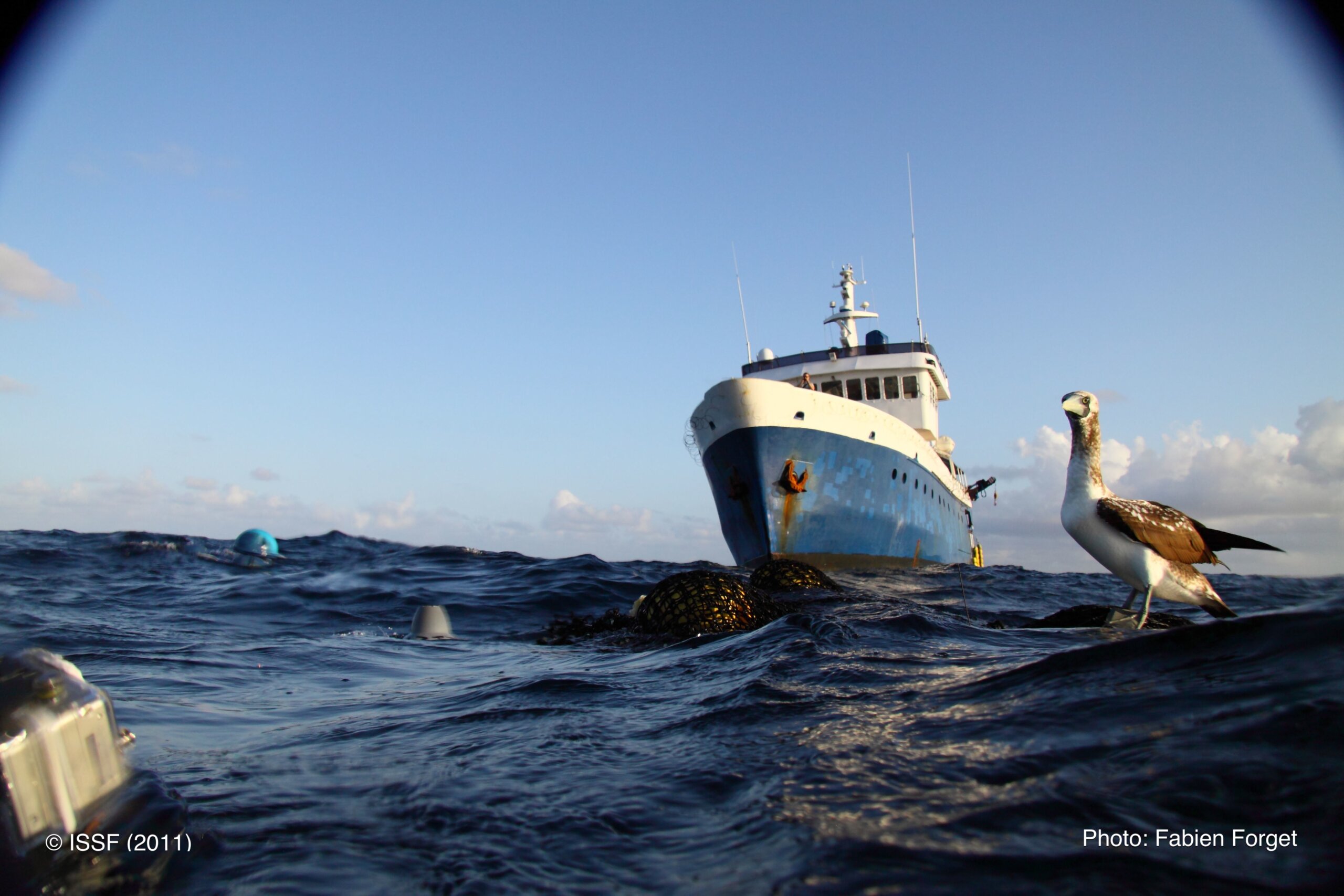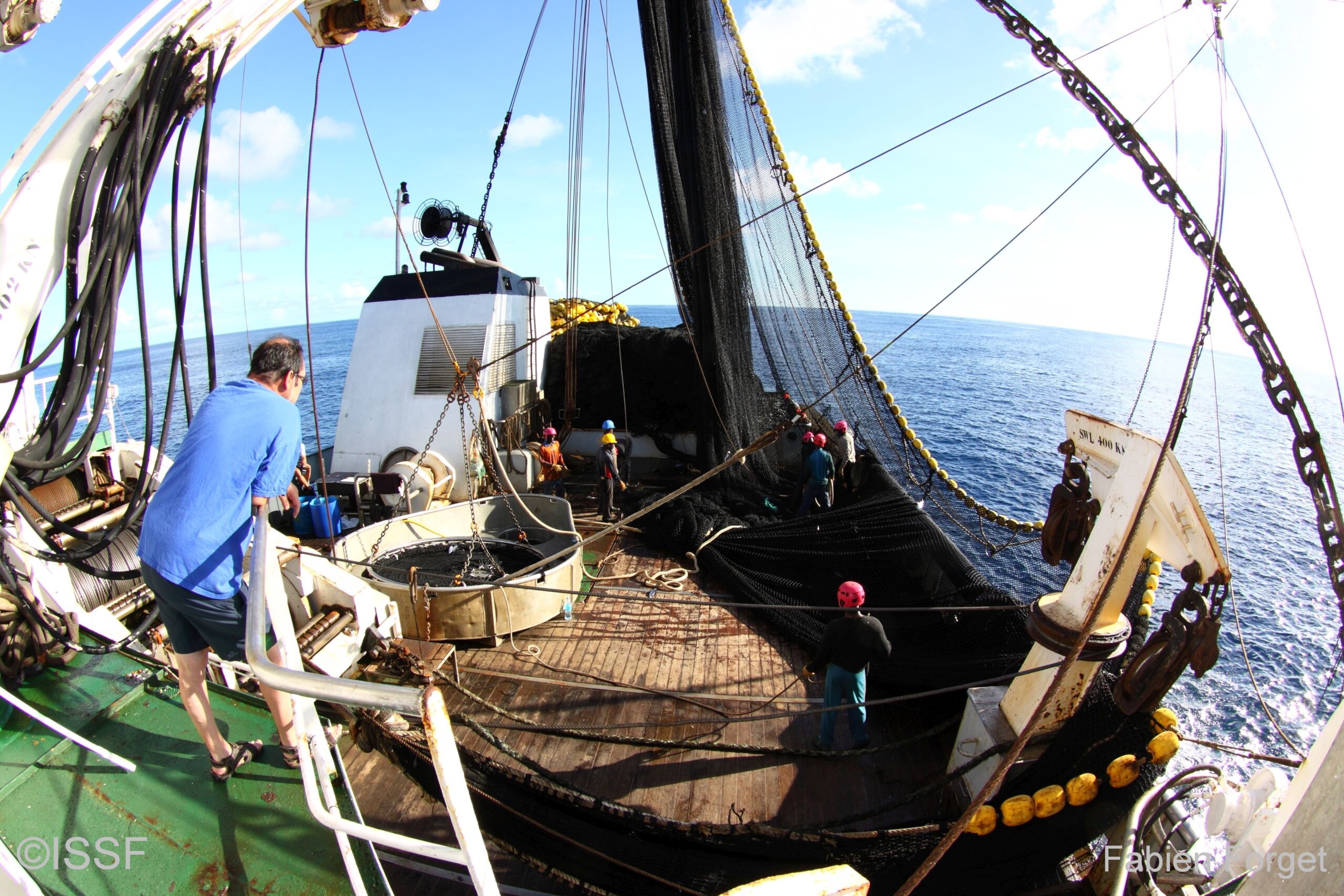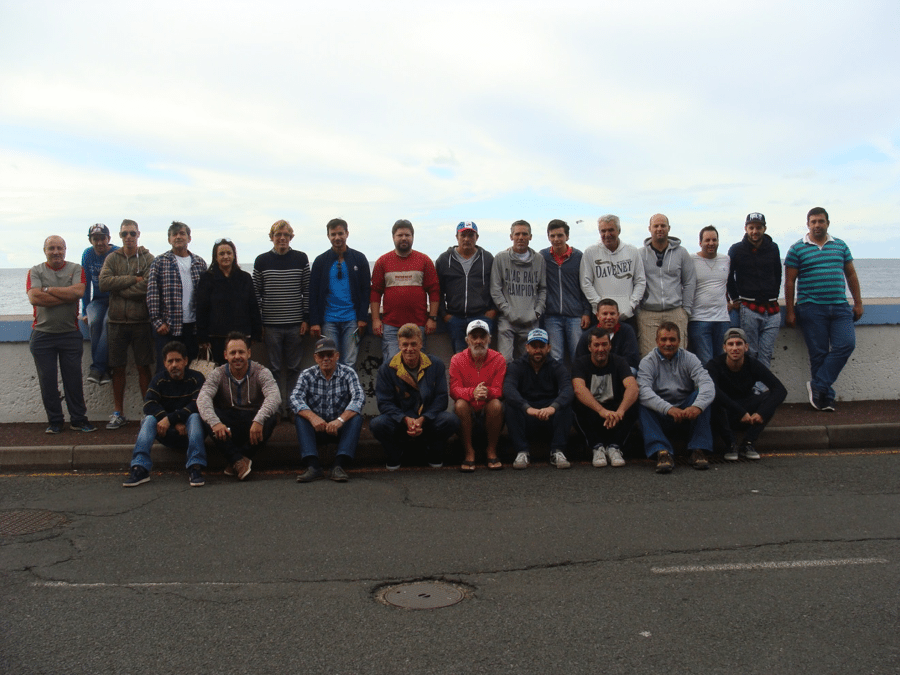
Reflections on Seven Years of Skippers Workshops Around the World
ISSF sponsored Skippers Workshops for the seventh consecutive year in 2016, convening purse seine fishers from around the world with marine scientists to listen and learn from each other about sustainable fishing.
From 2009 through 2015, we presented workshops on 4 continents and in 17 countries, and to vessels flying more than 25 flags. The workshops have been attended by skippers and crew from most of the important tuna fleets in Asia (Korea, Indonesia, Taiwan, Philippines), Africa (Ghana, Seychelles), Europe (Spain, France), Western Pacific (Micronesia, Marshall Islands), and North and South America (U.S.A., Ecuador, Panama, Mexico, Peru).
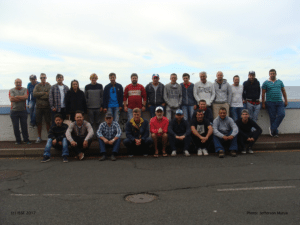
Welcoming new fleets to the workshop program
We continued to broaden our horizons in 2016, welcoming new fleets to the initiative. Half of the workshops we offered last year were conducted with tuna fishing fleets and ports never visited before, including China, Vietnam and Portugal. We received great feedback from all sides and are planning more workshops with skippers in these regions. So far we have reached over 2,400 participants — including fishers, ship owners, fleet managers, fisheries managers and scientists, among other stakeholders. Over 60 percent of the participants were captains, many with decades of experience fishing for tuna.
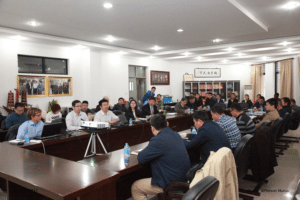
In these last several years, thanks to the insights from the captains and crew from many countries, we have learned a great deal about how each tuna fishery and fleet works. We have also heard firsthand from fishers willing to share their valuable knowledge — and appreciate the scientists and fishery managers who have taken time to hear their opinions.
Despite being the principal actors in the fishery, fishers can sometimes be left out when it comes to looking for solutions to the “sustainability equation.” Having revisited many ports on an annual basis, I have observed fishers increasing their efforts toward sustainable practices — they know it is in their best interest to maintain healthy tuna stocks and mitigate environmental impacts.
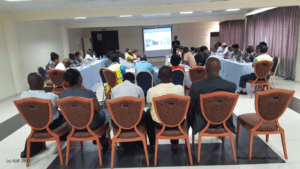
Fishers are adopting many recommended sustainable practices voluntarily, even when it brings additional work to an already demanding job. In fact, many of these ideas — such as the design of non-entangling FADs, and methods for releasing bycatch from the deck safely and with easy-to-use equipment — emerged through direct cooperation between skippers and scientists. Some captains and ship owners have taken ISSF scientists on board their vessels during commercial fishing trips to let them conduct important bycatch mitigation research.
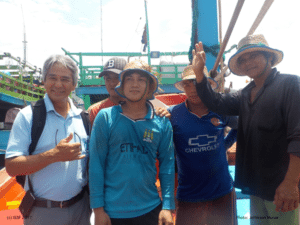
Thinking “small” to reach more skippers
ISSF’s Skippers Workshops examine technical bycatch-reduction approaches not only for the tuna fisheries of large commercial purse seiners, but also for small-scale tuna vessels. Last year, we made a point to interact with skippers from small vessel fleets like those of Indonesia and Vietnam.
Scientists and fishery managers often poorly understand the specific fishing methods used by small tuna vessels. To change that, scientists working with ISSF have been collecting information on these fishing gears and practices to develop customized bycatch-mitigation solutions.
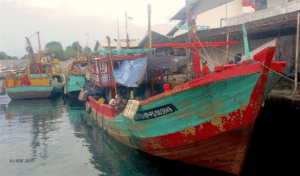
For instance, unlike large purse seiners, these smaller vessels do not have high-tech fish finders and satellite buoys; our research on echo-sounder buoy selectivity is not applicable to them. Instead, other methods of fish pre-estimation — such as visual cues and the use of specific guidebooks to distinguish between tuna species like yellowfin and bigeye tuna — are provided.
Training trainers to spread the message
Reaching these small vessel fleets can be challenging due to geographic dispersion, and small purse seine vessels number in the thousands. For this reason, ISSF has piloted a train-the-trainer program in Indonesia.
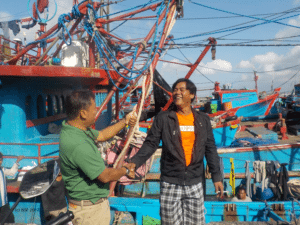
A team of local fisheries scientists from the Indonesian Research Center for Fisheries Management and Conservation (RCFMC) has been trained by their colleagues with ISSF to host additional skippers workshops at multiple ports around the islands of this archipelago. While ISSF provides multiple online tools like translated videos and guidebooks to facilitate training globally, reliable access to the internet by fishers is often difficult. For this reason, having in-person discussions in their native language and with qualified trainers greatly increases the training’s value and results.
Step by step, positive patterns are emerging in the tuna fishing fleets of the world. For example, non-entangling FADs — key to reducing bycatch — are now the norm in three out of four tuna fishing regions (e.g., Indian Ocean, Atlantic Ocean and Eastern Pacific). That’s notable progress when you consider that this kind of FAD did not even exist five years ago.
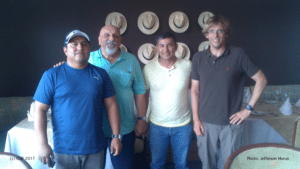
Making progress on best practices
The next step is to move towards biodegradable FADs in order to reduce marine debris, and we have been talking with captains about how best to accomplish this.
Recently, ISSF organized in San Sebastian, Spain, a small-scale workshop with experienced skippers and scientists to find the best ways to move this issue forward. Again, captains offered their insight to help design non-entangling biodegradable FADs, customized to best suit the conditions in each oceanic region. Trials are on the way that will test FADs built with these natural materials.
Increasingly, more and more vessels are routinely using best practices — developed through scientific research at sea, in conjunction with vessel crew — to release accidentally caught sharks, turtles and manta rays. We’re gratified that in 2016 we reached a record number of captains to share these best practices — over 340 skippers.
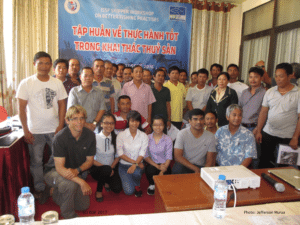
To date, more than 1,200 skippers and 1,000 industry stakeholders (crew, ship owners, fleet managers, cannery managers, etc.) have been part of the ISSF Skippers Workshop program. To our knowledge, ISSF’s program is one of the most successful fisher-industry-scientist collaborations in the world. Fishers are uniquely capable of facilitating the discovery of better, practical solutions to bycatch mitigation in today’s fisheries.
Dr. Jefferson Murua works in the Marine Research Division of AZTI, a non-profit foundation committed to the social and economic development of the marine environment and food sector. Dr. Murua also conducts educational workshops and research on behalf of ISSF.
